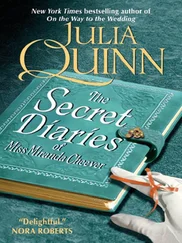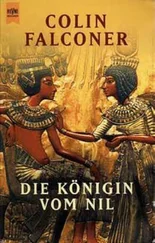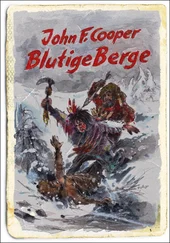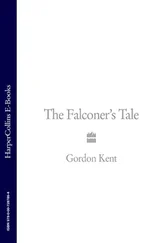John Cheever - Falconer
Здесь есть возможность читать онлайн «John Cheever - Falconer» весь текст электронной книги совершенно бесплатно (целиком полную версию без сокращений). В некоторых случаях можно слушать аудио, скачать через торрент в формате fb2 и присутствует краткое содержание. Жанр: Современная проза, на английском языке. Описание произведения, (предисловие) а так же отзывы посетителей доступны на портале библиотеки ЛибКат.
- Название:Falconer
- Автор:
- Жанр:
- Год:неизвестен
- ISBN:нет данных
- Рейтинг книги:3 / 5. Голосов: 1
-
Избранное:Добавить в избранное
- Отзывы:
-
Ваша оценка:
- 60
- 1
- 2
- 3
- 4
- 5
Falconer: краткое содержание, описание и аннотация
Предлагаем к чтению аннотацию, описание, краткое содержание или предисловие (зависит от того, что написал сам автор книги «Falconer»). Если вы не нашли необходимую информацию о книге — напишите в комментариях, мы постараемся отыскать её.
Falconer — читать онлайн бесплатно полную книгу (весь текст) целиком
Ниже представлен текст книги, разбитый по страницам. Система сохранения места последней прочитанной страницы, позволяет с удобством читать онлайн бесплатно книгу «Falconer», без необходимости каждый раз заново искать на чём Вы остановились. Поставьте закладку, и сможете в любой момент перейти на страницу, на которой закончили чтение.
Интервал:
Закладка:
The irony of Christmas is always upon the poor in heart; the mystery of the solstice is always upon the rest of us. The inspired metaphor of the Prince of Peace and his countless lights, overwhelming the maddening and the threadbare carols, was somewhere here; here, on this asshole August afternoon the legend still had its stamina. Their motives were pure enough. Mrs. Spingarn genuinely loved her son and grieved at his cruel and unnatural end. The guards genuinely feared disorder and death. The inmates would fleetingly feel that they had a foot in the faraway street. Farragut looked above this spectacle to the rest of the classroom. There was an empty blackboard and above this an alphabet written in a Spencerian hand long, long ago. The penmanship was very elegant, with loops, hoops, tails, follow-throughs and a crossed t like an acrobat’s bow. Above this was an American flag with forty-two stars, the white stripes dyed by time to the yellow of hot piss. One would have liked to do better, but that was the color of the flag under which Farragut had marched into battle. Then there was the photographer.
He was a slender man with a small head-a dandy, Farragut thought. His camera, on a tripod, was no bigger than a wrist-watch box, but he seemed to have a relationship with or a noticeable dependence upon the lens. He seemed to take his squinted eye away from it reluctantly. His voice was croupy and elegant. Two photographs were taken. The first was a picture of the form with the prisoner's number and the designated address. The second was of the prisoner himself, taken with a little gentle guidance. "Smile. Lift your head a little. Bring your right foot closer to your left. That's it!" When Chicken took his place and held up his form, they all read: Mr. and Mrs. Santa Claus. Icicle Street. The North Pole. The photographer smiled broadly and was looking around the room to share this joke with the rest of them when he suddenly grasped the solemnity of Chicken's loneliness. No one at all laughed at this hieroglyph of pain, and Chicken, sensing the stillness at this proof of his living death, swung his head around, shot up his skinny chin and said gaily, "My left profile's my best."
"That's it," said the photographer.
At his turn Farragut wondered what role to aim at, and trying to look and feel like a constant husband, a comprehensive father and a prosperous citizen, smiled broadly and stepped into the intense brightness and heat of the light. "Oh, Indian Hill," said the photographer. "I know that place. I mean I've seen the sign. Do you work there?"
"Yes," said Farragut.
“I have friends in Southwick," said the photographer. "That's it."
Farragut went to the window, where he had a broad view of cellblocks B and C. They looked, with their ranks of windows, like some obsolete Northern cotton mill. He looked in the windows for flames and a rush of shadows, but all he saw was a man hanging up his wash to dry. The passiveness of the place bewildered him. They could not all have been humiliated and gulled by nakedness and a glittering tree, but that seemed to be the case. The place seemed sleepy. Had they all retreated into the torpor he had chosen when Chicken fired his mattress? He looked again at the stranger hanging out his wash.
Farragut joined the others waiting in the corridor. Outside it had begun to rain. Ransome went among them, collecting the forms that had been photographed. These were useless and Farragut watched Ransome with interest, for he was so secretive a man that to follow any of his consecutive movements promised to be revealing. What he did, when he had collected a dozen forms, was to climb onto a chair. Ransome was a big man and the chair was rickety and he checked his safety by shifting his weight. When he felt secure he began to tear the forms into small pieces and cast them, like a sower, over the heads and shoulders of the others. His face was beaming and he sang "Silent Night." The Cuckold picked up a good bass, and considering the distance they had all come from caroling, they formed a small, strong choir, singing enthusiastically about the Virgin. The old carol and the scraps of paper falling softly through the air onto their heads and shoulders was not at all a bitter recollection on that suffocating rainy day, but a light-hearted memory of some foolishness, linked to a fall of snow.
Then they lined up and marched out. Another group of inmates stood lined up in the tunnel, waiting their turn to be photographed beside the tree. Farragut regarded them with the pleasure and surprise with which one regards the crowd waiting to get into the next show at a movie. That was the end to his cheerfulness. As soon as they saw the faces of the guards in the tunnel they saw that their Christmas was over.
Farragut washed himself carefully and vigorously with cold water and then smelted himself like a canine, sniffed his armpits and h is crotch, but he couldn't tell whether it was he or Bumpo who smelted. Walton was on duty, studying his texts. He was taking a night course in automobile salesmanship. He couldn't pay too much attention to whether or not they talked. When Ransome asked to play cards with the Stone, he sprang him impatiently. "I'm studying for an exam. I'm studying for an exam. I know that none of youse knows what that means, but if I flunk this exam I got to take the whole year over again. This whole place is gone crazy. I can't study at home. The baby's sick and crying all the time. I come here early to study in the squad room, but the squad room is like an insane asylum. Now I come here looking for peace and quiet and it's like the Tower of Babel. Play cards but shut up."
Farragut, taking advantage of this, began to shout at Bumpo. "Why the fuck don't you wash your skin? I've washed myself, I've washed myself all over, but I can't enjoy my clean smell because you smell like a waste can in the back alley behind some butcher store."
"Oh, I do, do I!" yelled Bumpo. "So that's how you get your rocks off, sniffing cans outside butchers'."
"Shut up, shut up, shut up," said Walton. "I got to study for this exam. You know what it's like, Farragut. If I fail this exam I have to spend another year, another semester anyhow, sitting on my ass on a hard chair studying what I already knew but forgot. And my professor is a bitch. Talk if you have to, but talk softly."
"Oh, Bumpo, oh, Bumpo, dear Bumpo, darling Bumpo," said Farragut softly, "what did the cashier say to the cash register?"
"I'm a wrinkled grape," said Bumpo.
"Oh, darling Bumpo," said Farragut softly. "I have a great favor to ask of you. The history of modern civilization depends upon your arriving at an intelligent decision. I have heard you speak fluently about your willingness to give your diamond to some starving child or some lonely crone, by-passed by the thoughtless world. Now a much greater opportunity is about to be placed in your hands. I possess the rudiments of a radio-an aerial, a ground and a copper-wire tuner. All I need is an earphone and a diode crystal. The Stone has one and you have the other. With this, with your diamond, the Gordian knot of communications that threatens the Department of Correction and the government itself can be cut. They have twenty-eight hostages by the balls. A single mistake on the part of our brothers will have us cut down by the hundreds. A crucial mistake on the part of the Department of Correction may detonate riots in every prison in this nation and perhaps the world. We are millions, Bumpo, we are millions, and if our riots are triumphant we can rule the world, although you and I, Bumpo, know that we lack the brains for this. So, lacking the brainpower, the best we can hope for is a truce, and it all depends on your rock."
"Take your little prick and go home," said Bumpo softly.
"Bumpo, Bumpo, dear Bumpo, God gave you your diamond and God means you should give it to me. It is the balance, Bumpo, upon which the lives of millions depend. The radio was invented by Guglielmo Marconi in 1895. It was the beautiful discovery of that fact that electrified airwaves, containing sound, can, at a distance, be reconverted into intelligible sound. With the help of your diamond, Bumpo, we can learn exactly how much they Ye twisting those twenty-eight balls at The Wall."
Читать дальшеИнтервал:
Закладка:
Похожие книги на «Falconer»
Представляем Вашему вниманию похожие книги на «Falconer» списком для выбора. Мы отобрали схожую по названию и смыслу литературу в надежде предоставить читателям больше вариантов отыскать новые, интересные, ещё непрочитанные произведения.
Обсуждение, отзывы о книге «Falconer» и просто собственные мнения читателей. Оставьте ваши комментарии, напишите, что Вы думаете о произведении, его смысле или главных героях. Укажите что конкретно понравилось, а что нет, и почему Вы так считаете.












